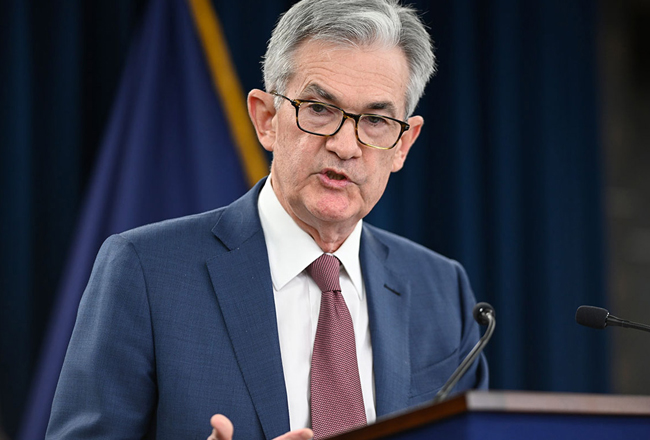In a speech prepared for a webcast this morning sponsored by the Peterson Institute for International Economics in Washington, D.C., Federal Reserve Chairman Jerome Powell warns that the COVID-19 pandemic could result in a long-term recession and urges additional action by Congress and the White House to prevent it.

“A prolonged recession and weak recovery could also discourage business investment and expansion, further limiting the resurgence of jobs as well as the growth of capital stock and the pace of technological advancement. The result could be an extended period of low productivity growth and stagnant incomes,” Powell said.
“Additional fiscal support could be costly, but worth it if it helps avoid long-term economic damage and leaves us with a stronger recovery. This tradeoff is one for our elected representatives, who wield powers of taxation and spending.”
Powell expressed concern about individuals and businesses becoming insolvent, saying it could hold down economic growth for years to come.
“Long stretches of unemployment can damage or end workers’ careers as their skills lose value and professional networks dry up, and leave families in greater debt. The loss of thousands of small and medium-size businesses across the country would destroy the life’s work and family legacy of many business and community leaders and limit the strength of the recovery when it comes,” Powell says.
He describes the scope and speed of the current economic downturn as being without modern precedent and significantly worse than any recession since World War II. He also previewed a Federal Reserve report.
“A Fed survey being released tomorrow reflects findings similar to many others: Among people who were working in February, almost 40 percent of those in households making less than $40,000 a year had lost a job in March,” Powell said. “This reversal of economic fortune has caused a level of pain that is hard to capture in words, as lives are upended amid great uncertainty about the future.”
Powell said that loans from a Fed facility can provide temporary help for businesses dealing with liquidity problems and those loans will help many borrowers get through the current crisis but notes that today’s liquidity problems can turn into tomorrow’s bankruptcies.
“While the economic response has been both timely and appropriately large, it may not be the final chapter, given that the path ahead is both highly uncertain and subject to significant downside risks,” Powell said. “Economic forecasts are uncertain in the best of times, and today the virus raises a new set of questions:
- “How quickly and sustainably will it be brought under control?”
- “Can new outbreaks be avoided as social-distancing measures lapse?”
- “How long will it take for confidence to return and normal spending to resume?”
- “And what will be the scope and timing of new therapies, testing, or a vaccine?”
“The answers to these questions will go a long way toward setting the timing and pace of the economic recovery. Since the answers are currently unknowable, policies will need to be ready to address a range of possible outcomes,” Powell said.





















